Cultural industry is identified as a driving force for rapid and sustainable development of the country in the new conditions. However, do we have a new institutional approach, a tool to measure the effective contribution of cultural industry to socio-economic growth and a mechanism for culture to truly participate in the structure of local development dynamics?
These are the concerns of Associate Professor - Doctor Nguyen Thi Thu Phuong, Director of the Vietnam Institute of Culture, Arts, Sports and Tourism, raised in the scientific workshop "Theoretical basis and international experience in perfecting the institution for developing cultural industries to contribute to creating momentum for rapid and sustainable development of the country in new conditions" held on November 4, in Hanoi .
Institutional bottlenecks
In recent years, our Party and State have clearly identified culture as not only a spiritual foundation, but also an endogenous strength, a driving force and a regulating system of society, contributing to rapid and sustainable development.
The Resolution of the 13th National Party Congress emphasized the need to arouse the aspiration to develop a prosperous and happy country on the basis of promoting the cultural values and Vietnamese people as a special endogenous resource. The Draft Document of the 14th National Party Congress continues to follow that trajectory, while emphasizing the need for institutional breakthroughs and perfecting the policy framework for innovation, knowledge economy, cultural industry and creative economy as one of the new growth pillars.
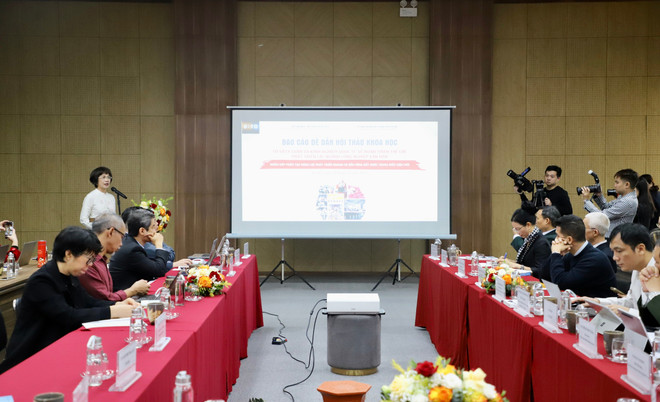
On the Government side, the Strategy for the Development of Vietnam's Cultural Industries to 2020, with a Vision to 2030, issued in 2016, established cultural industries as an economic sector that directly contributes to growth, employment, and budget revenue; and is also a channel to increase Vietnam's cultural soft power, thereby enhancing Vietnam's international position through products, services, and the image of Vietnamese culture and people.
The strategy also specifies the requirement to form a creative ecosystem and develop cultural industries in the direction of professionalization and commercialization, based on intellectual property and indigenous cultural values.
Associate Professor, Dr. Nguyen Thi Thu Phuong said that the Party and the State have had policies, strategies, and a unified understanding of the role of the cultural industry. However, the biggest bottleneck at present is not in the vision, but in the system.
Accordingly, the current institutional framework for developing cultural industries is still fragmented according to each state management field; lacks a strong enough coordination mechanism to connect culture, creativity, science and technology, tourism, trade, and urban areas; lacks tools to encourage private investment and public-private partnership; lacks a policy testing corridor (sandbox) for new models; and especially lacks flexible operating mechanisms at the local level, especially in creative urban centers.

“In short, the lack of a unified system has prevented the potential of cultural industries from truly becoming a driving force for development,” Ms. Phuong emphasized.
From a management perspective, Ms. Trinh Ngoc Tram, Vice Chairman of the People's Committee of Cua Nam Ward, Hanoi, said that in recent years, Cua Nam Ward in particular and Hanoi City in general have always identified cultural industry as the core to promote economic development based on creative cultural values, contributing to economic restructuring and improving people's spiritual life.
Ms. Trinh Ngoc Tram emphasized the importance of the Workshop as a quality academic forum, promoting cooperation, dialogue, in-depth and constructive exchange of ideas, thereby helping state management agencies continue to perfect mechanisms and policies to effectively develop the cultural industry, contributing to creating a driving force for rapid and sustainable development for the capital Hanoi in particular and the country in general in the new conditions.
Encouraging digital content with Vietnamese identity
In terms of theoretical basis, the concept of "institution for cultural industry development" does not stop at systems of laws, decrees or individual incentive mechanisms.
According to Associate Professor-PhD Nguyen Thi Thu Phuong, at a higher level, institutions include mechanisms for the division and coordination of administrative power between the central and local levels; mechanisms for the recognition and protection of intellectual property and copyright; financial mechanisms for creativity; and mechanisms to ensure the participation of the creative community and cultural enterprises in the policy-making process.
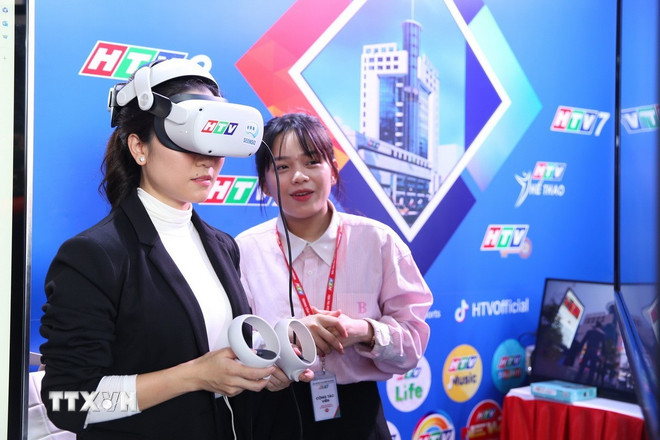
This is a shift from thinking about culture as a “management field” to thinking about culture as a “soft institutional foundation of development.” When culture becomes a soft institutional foundation, the cultural industry not only creates creative products and services, but also builds social trust, local identity, investment attractiveness and community cohesion – essential elements of sustainable development.
Giving his own opinion on the electronic game sector, Mr. Chu Tien Dat, Chairman of the Board of Members of VTC Multimedia Corporation, said that although there has been an orientation to develop the cultural industry and encourage digital content with Vietnamese identity, specific and separate support policies for Vietnamese game developers, especially game projects exploiting Vietnamese cultural and historical values, are still lacking or not strong enough.
Mr. Chu Tien Dat believes that the State needs to build and perfect a synchronous and transparent legal framework for the gaming industry, ensuring synchronization, transparency, ease of understanding and feasibility in practice. In particular, institutions need to be flexible to adapt to the rapid development of technology (Blockchain, Metaverse...) and new business models.

In addition, Mr. Dat also proposed to establish funds to support the development of Vietnamese games, especially prioritizing game products with Vietnamese cultural and historical identity. Applying the State's ordering mechanism for game projects with high cultural and educational values, at the same time building transparent criteria and processes to select and monitor these projects.
Mr. Nguyen Viet Nam, Director of the cultural-creative enterprise TiredCity, also proposed tax incentives and special mechanisms for those working in the cultural industry.
“In the cultural industries, creativity is the fundamental source of energy that creates surplus value, promotes innovation and ensures product sustainability. Without a suitable balancing mechanism, creative practitioners are vulnerable and businesses find it difficult to cooperate and maintain long-term creativity. Balancing the interests between commercial activities and individual creativity therefore becomes a central task for the sustainable development of the cultural industry,” said Mr. Nguyen Viet Nam./.
Source: https://www.vietnamplus.vn/phat-trien-cong-nghiep-van-hoa-can-co-che-ho-tro-cong-dong-sang-tao-post1074878.vnp



![[Photo] Panorama of the Patriotic Emulation Congress of Nhan Dan Newspaper for the period 2025-2030](https://vphoto.vietnam.vn/thumb/1200x675/vietnam/resource/IMAGE/2025/11/04/1762252775462_ndo_br_dhthiduayeuncbaond-6125-jpg.webp)

![[Photo] Opening of the 14th Conference of the 13th Party Central Committee](https://vphoto.vietnam.vn/thumb/1200x675/vietnam/resource/IMAGE/2025/11/05/1762310995216_a5-bnd-5742-5255-jpg.webp)

![[Photo] The road connecting Dong Nai with Ho Chi Minh City is still unfinished after 5 years of construction.](https://vphoto.vietnam.vn/thumb/1200x675/vietnam/resource/IMAGE/2025/11/04/1762241675985_ndo_br_dji-20251104104418-0635-d-resize-1295-jpg.webp)


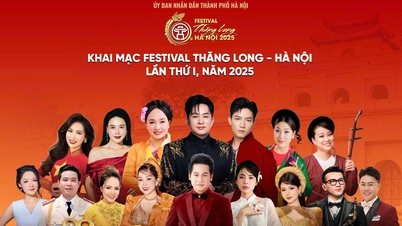







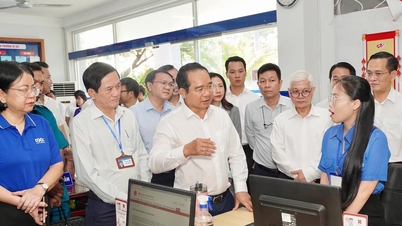




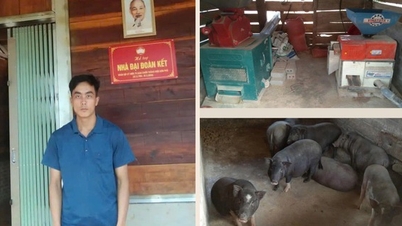








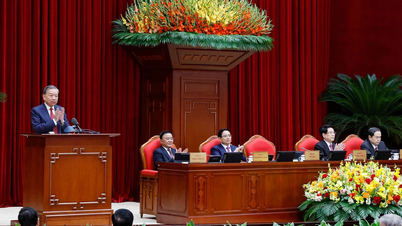
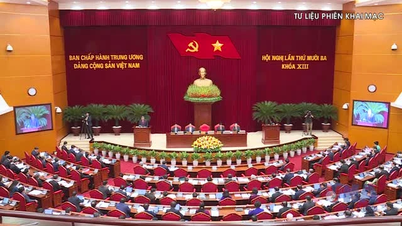
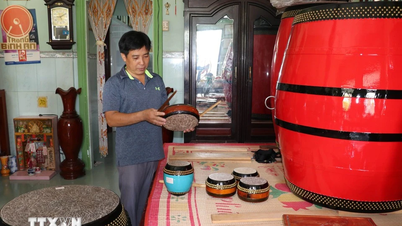



















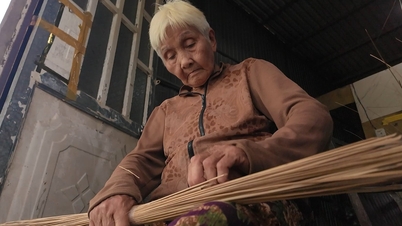






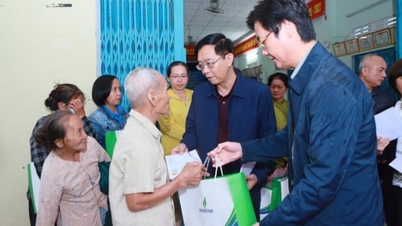







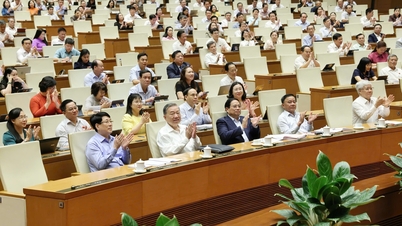






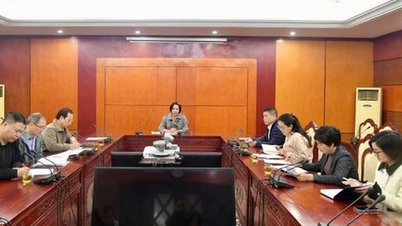

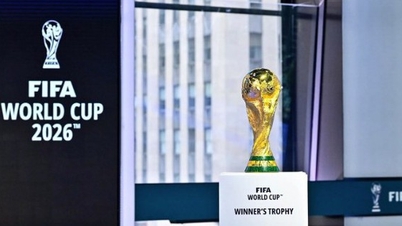
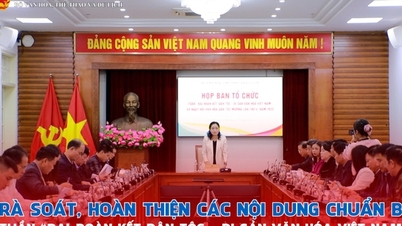
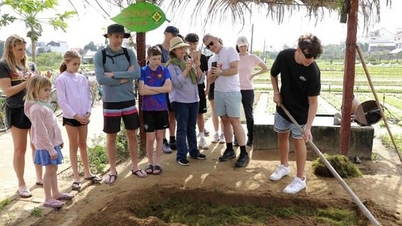







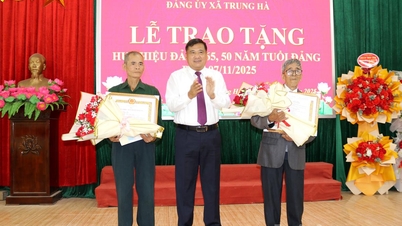
















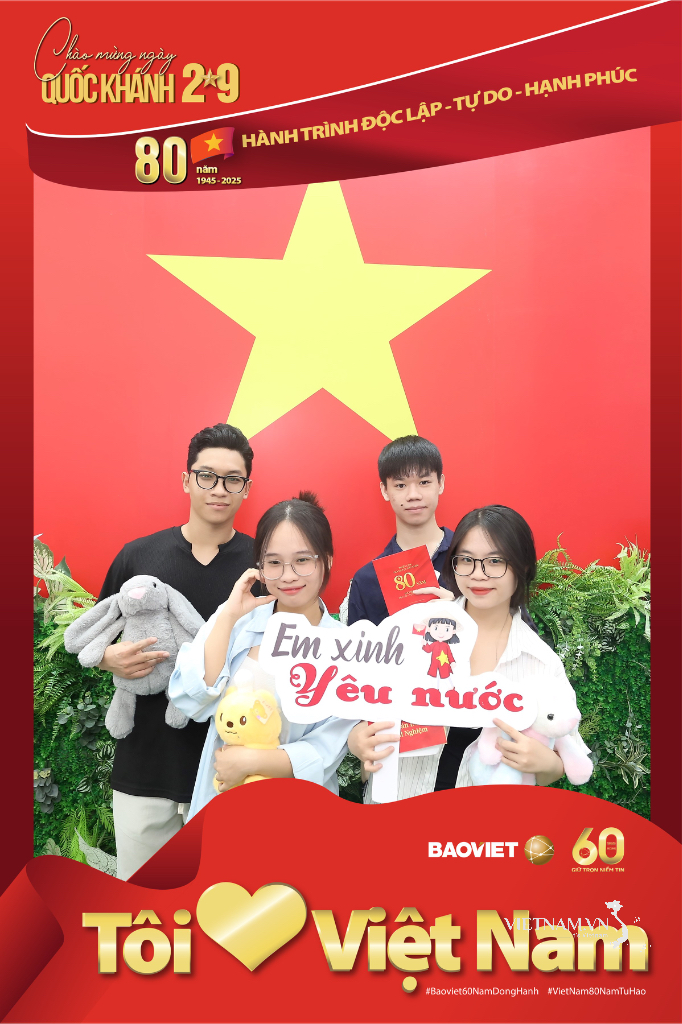
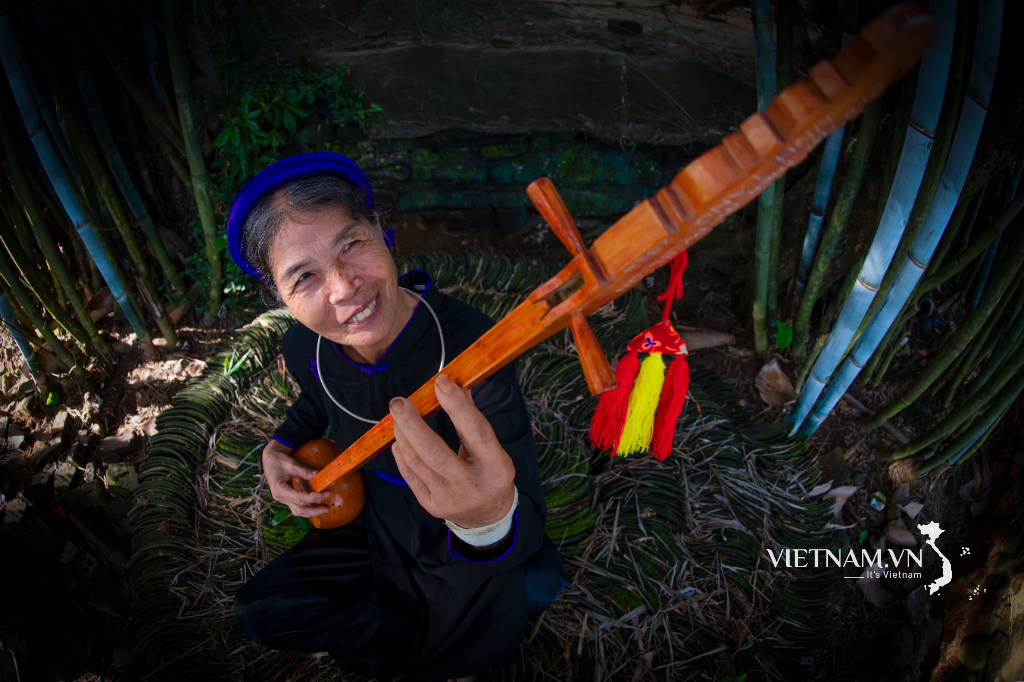
Comment (0)